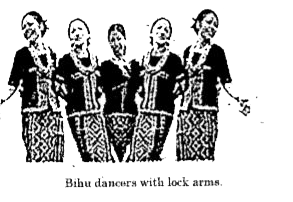Take two glasses/beakers filled with water.
Put a drop of blue or red ink slowly and carefully by the sides of the first beaker and honey in the same way in the second beaker.
Leave them undisturbed in your home or in a corner in the class.
Record your observations.
What do you observe immediately after adding the ink drop ?
The particles of ink intermixes with the particles of water.
Topper's Solved these Questions
- MATTER IN OUR SURROUNDINGS BOOK - NAND LAL PUBLICATIONCHAPTER - MATTER IN OUR SURROUNDINGS EXERCISE - ACTIVITY 1.5
4 Videos
- MATTER IN OUR SURROUNDINGS BOOK - NAND LAL PUBLICATIONCHAPTER - MATTER IN OUR SURROUNDINGS EXERCISE - ACTIVITY 1.6
2 Videos
- MATTER IN OUR SURROUNDINGS BOOK - NAND LAL PUBLICATIONCHAPTER - MATTER IN OUR SURROUNDINGS EXERCISE - ACTIVITY 1.3
4 Videos
- ATOMS AND MOLECULES BOOK - NAND LAL PUBLICATIONCHAPTER - ATOMS AND MOLECULES EXERCISE - ADDITIONAL QUESTIONS (LONG ANSWER TYPE QUESTIONS)
1 Videos
- STRUCTURE OF THE ATOM BOOK - NAND LAL PUBLICATIONCHAPTER - STRUCTURE OF THE ATOM EXERCISE - ADDITIONAL QUESTIONS (LONG ANSWER TYPE QUESTIONS )
1 Videos
Similar Questions
Drop a crystal of copper sulphate or potassium permanganate into a glass of hot water and another containing cold water. Do not stir the solution. Allow. the crystals to settle at the bottom.
Observe and report.
What do you observe just above the solid crystal in the glass ?
View SolutionPlay this game in the field-make four groups and form human chains as suggested.
The first group should hold each other from the back and lock arms like Bihu dancers (Fig.)

The second group should hold hands to form a human chain.
The third group should form a chain by touching each other with only their finger tips.
Now the fourth group of students should run around and try to break the three human chains one by one into as many small groups as possible.
Which group was the easiest to break ? Why?
View SolutionPut an unlit incense stick in a corner of your class.
Now light the incense stick.
How close do you have to go near it so as to get its smell?
View SolutionWrite the rules for writing symbols . Give an example of each rule .
View SolutionGive the properties of cathode rays ?
View SolutionA coin in a glass beaker appears to rise as the beaker is slowly filled with water. Why?
View SolutionName the process by which a drop of ink spreads in a beaker of water.
View SolutionA drop of ink and a drop of honey are placed in water in different beakers. Which of the two will spread faster ? Give reason for your answer.
View SolutionArchit dropped a crystal of potassium permanganate into two beakers A and B containing hot water and cold water respectively. After keeping the beakers undisturbed for some time what did he observe and why ?
View SolutionApparatus: Beakers. Chemicals: Samples of various metals , water. Procedure: Drop a piece of each of the metal in separate beakers filled with cold water. Prepare a table with reference to the above procedure and note your observations in it.
View SolutionWhat do you observe immediately after adding the ink drop?
View SolutionWhat do you observe immediately after adding a drop of honey?
View SolutionIn a beaker CusO_(4) Take a solution and put a blade in it. Write your observations.
View SolutionTake a 250 mf, beaker /glass tumbler. Fill half of it with water. Now carefully cut a small piece of sodium metal. Dry it using filter paper and wrap it in a small piece of cotton. Put the sodium piece wrapped in cotton into the beaker. Observe carefully '(During observation keep away from the beaker). When reaction stops touch the beaker. What do you feel? Has the beaker become hot? Test the solution with red and blue litmus papers. Is the solution acidic or basic?
View SolutionDrop an egg in a beaker of water. Now drop the same egg in another beaker of water in which excessive salt is added. Write your observation.
View SolutionDo the following activities. Write down your observations. What do you conclude ? : Add some oil drops to a beaker of water.
View Solution
